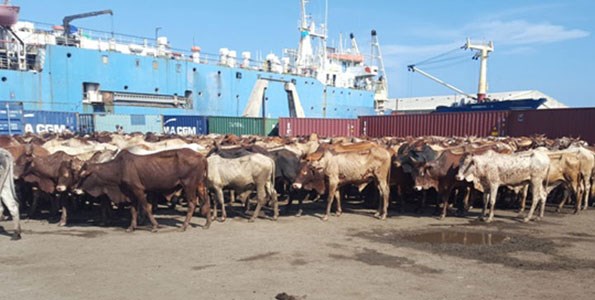
Sunday May 31, 2020

A livestock consignment next to a ship at Somalia's Mogadishu port prior to exportation to the United Arab Emirates on November 18, 2015. FILE | NATION MEDIA GROUP NATION MEDIA GROUP
The Famine Early Warning Systems Network (FEWS NET) monitors trends in staple food prices in countries vulnerable to food insecurity. For each FEWS NET country and region, the Price Bulletin provides a set of charts showing monthly prices in the current marketing year in selected urban centers and allowing users to compare current trends with both five-year average prices, indicative of seasonal trends, and prices in the previous year.
The livestock sector is central to the economic and cultural life of the Somali people. The sector provides food and income to over 60 percent of the country’s population. Burao and Galkayo are the largest livestock markets in the Horn of Africa especially for export sheep and goats from the Somali region of Ethiopia and parts of southern Somalia.
The majority of the livestock exported through Berbera and Bosasso seaports transit or pass through these markets. Burao and Galkayo are two important reference markets for key pastoral livelihood zones of Hawd, Sool Plateau, Nugaal valley, and the Adun in the northeast and central regions.
Beled Weyne connects the south and central regions of the country, and is the supply source of export cattle through Bosasso port. Dinsor, Bardera, and Afmadow are important cattle markets in the agro pastoral livelihood zones in southern Somalia.
Significant number of the cattle trekked to Garissa, Kenya transit these markets. Afmadow is largest cattle market in southern Somalia. It is the reference market for the largest cattle belt in the Juba valley. It is the main source of the cross border cattle trade to the Garissa, Mombasa, and Nairobi markets in Kenya.